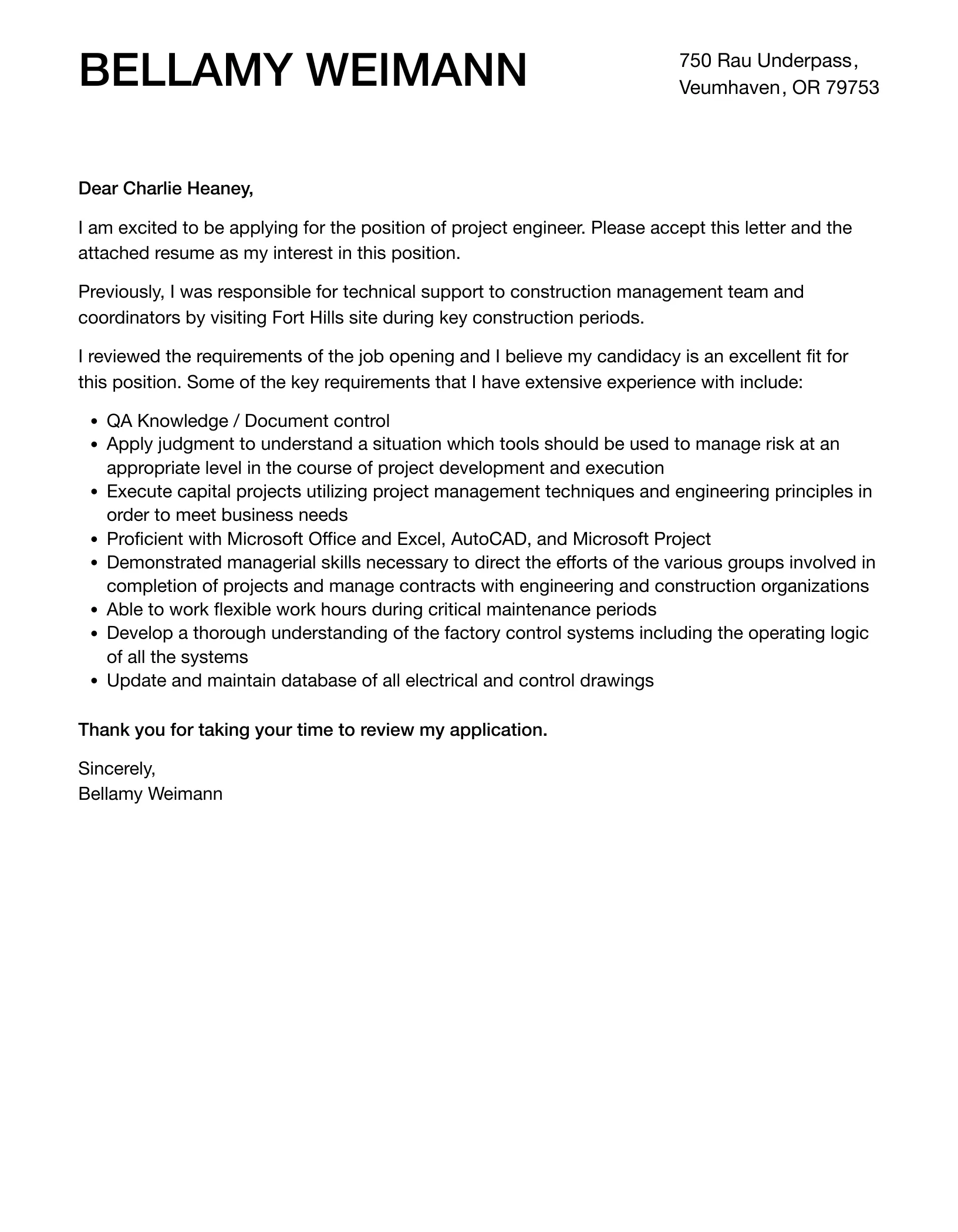Cover Letter Secrets for Project Engineers
Landing a project engineer role is a significant career step, and your cover letter is your first opportunity to make a strong impression. It’s not just a formality; it’s your chance to showcase your skills, experience, and enthusiasm. A well-crafted cover letter can significantly increase your chances of getting an interview. This guide will provide you with the secrets to writing a compelling cover letter that grabs the hiring manager’s attention and sets you apart from other candidates. We’ll cover everything from understanding the role to tailoring your letter and closing with confidence.
Understanding the Project Engineer Role
Before you start writing, understanding what a project engineer does is crucial. This knowledge informs the language you use and the skills you highlight. A project engineer is responsible for planning, coordinating, and overseeing engineering projects. This includes managing budgets, timelines, resources, and ensuring projects meet quality standards. They often work closely with other engineers, contractors, and clients, making communication and leadership skills essential.
Key Responsibilities of a Project Engineer
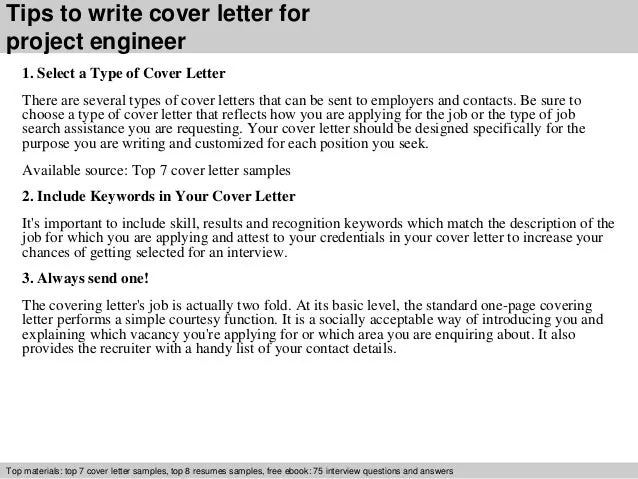
Project engineers have diverse responsibilities. They manage project scopes, define objectives, and develop detailed plans. They also oversee project execution, monitor progress, and ensure projects stay on track. They identify and mitigate risks, solve engineering problems, and coordinate with stakeholders. Furthermore, project engineers must ensure projects comply with industry standards and regulations.
Skills Required for Project Engineers
Successful project engineers possess a combination of technical and soft skills. Technical skills include proficiency in engineering principles, design software, and project management methodologies. Soft skills are equally important. These include communication, leadership, problem-solving, and the ability to work well in a team. Strong organizational skills and attention to detail are also crucial.
Crafting Your Cover Letter
Now let’s get down to the specifics of writing your cover letter. Structure, content, and tone are all important. This is where you can make the crucial first impression. Remember, the goal is to show that you understand the role, possess the necessary skills, and are eager to contribute to the company’s success. The following sections will guide you through each part of the process.
Header and Contact Information
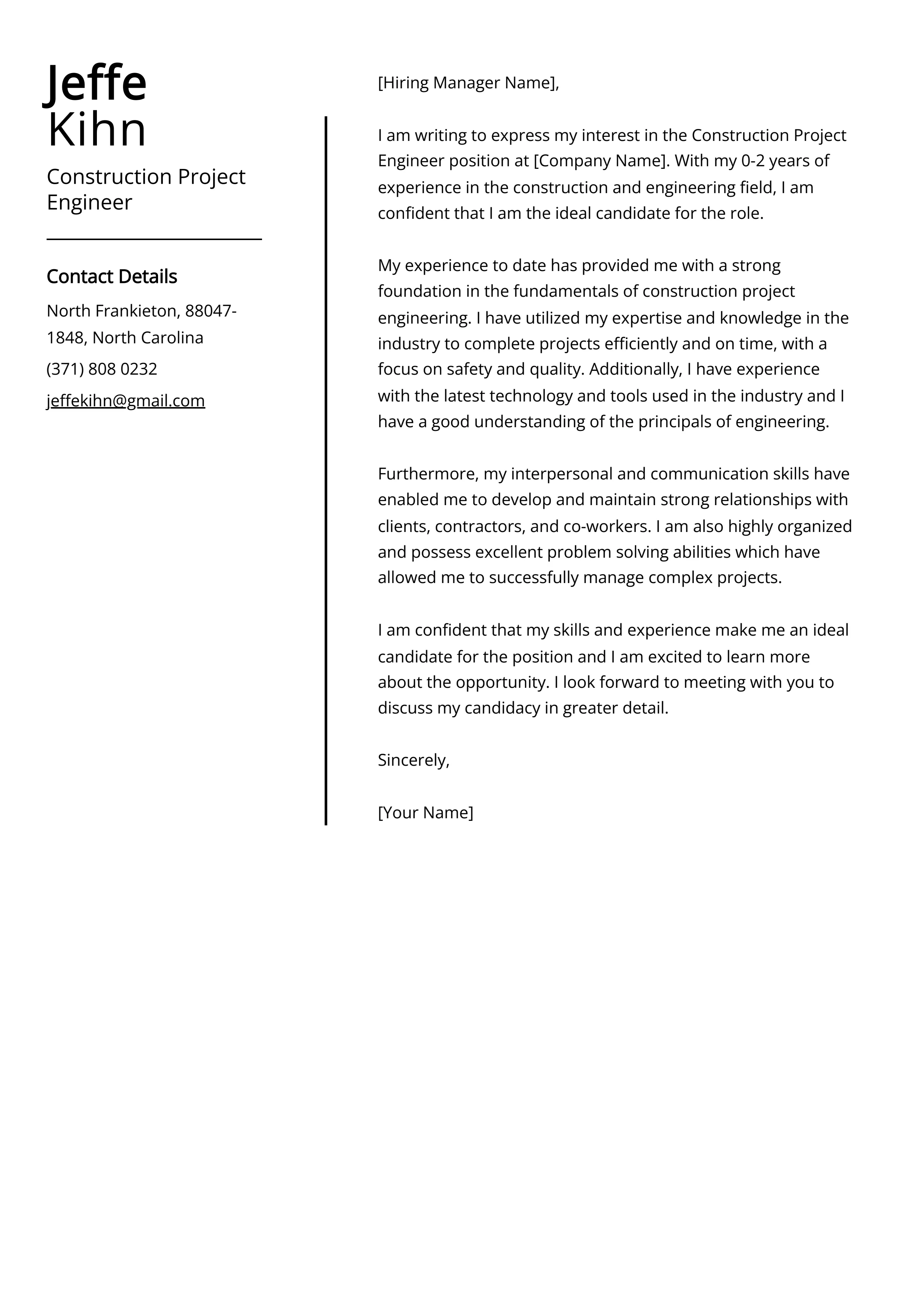
Your header should be professional and easy to read. Include your full name, contact information (phone number, email address, and LinkedIn profile URL, if applicable), and the date. Ensure your email address sounds professional. The recipient’s name and address (if known) should be clearly stated below, following standard business letter format.
The Opening Paragraph
This is your hook. Start with a strong statement that immediately grabs the reader’s attention. State the position you’re applying for and where you saw the job posting. Briefly mention your key qualifications or a significant achievement that aligns with the role’s requirements. Show genuine enthusiasm for the company and the position, but keep it concise and focused. This is where you make them want to read more.
Highlighting Your Skills and Experience
This is the core of your cover letter. Align your skills and experience with the job description’s requirements. Focus on the key skills and experiences that make you a strong candidate. Use specific examples to demonstrate your abilities. Instead of simply listing your duties, describe your accomplishments and how you contributed to project success. This section should showcase how your experience directly benefits the company. Use active voice and action verbs to make your descriptions more impactful.
Quantifying Your Achievements
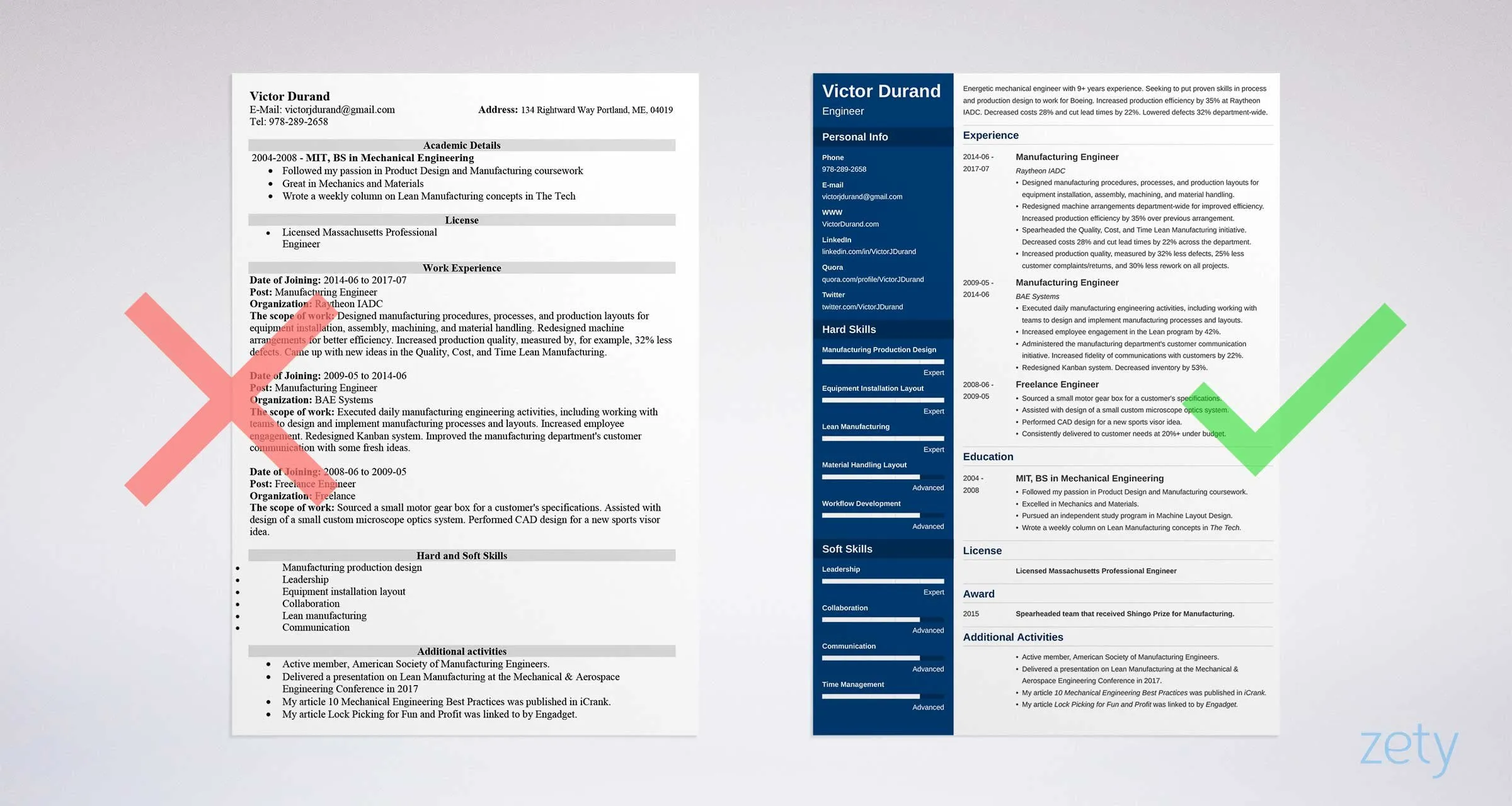
Whenever possible, quantify your achievements. Use numbers and metrics to demonstrate the impact you’ve made in previous roles. For example, instead of saying ‘Managed project budgets,’ state ‘Managed project budgets of up to $1 million, consistently delivering projects under budget by an average of 5%.’ This adds credibility and clearly illustrates the value you can bring to the company.
Showcasing Your Knowledge
Demonstrate your understanding of the engineering field and the specific industry the company operates in. Mention any relevant industry knowledge, certifications, or software proficiency. Show that you have done your research and understand the company’s products, services, and values. This shows you are not just looking for a job but are genuinely interested in contributing to their mission.
Demonstrating Your Enthusiasm
Let your enthusiasm shine through. Explain why you are interested in the company and the project engineer role. Express your eagerness to contribute to their goals. Show that you have researched the company and that their values align with yours. Mentioning specific projects or aspects of the company that excite you is a great way to make a lasting impression. Remember, employers seek candidates who are excited and engaged.
Formatting and Proofreading
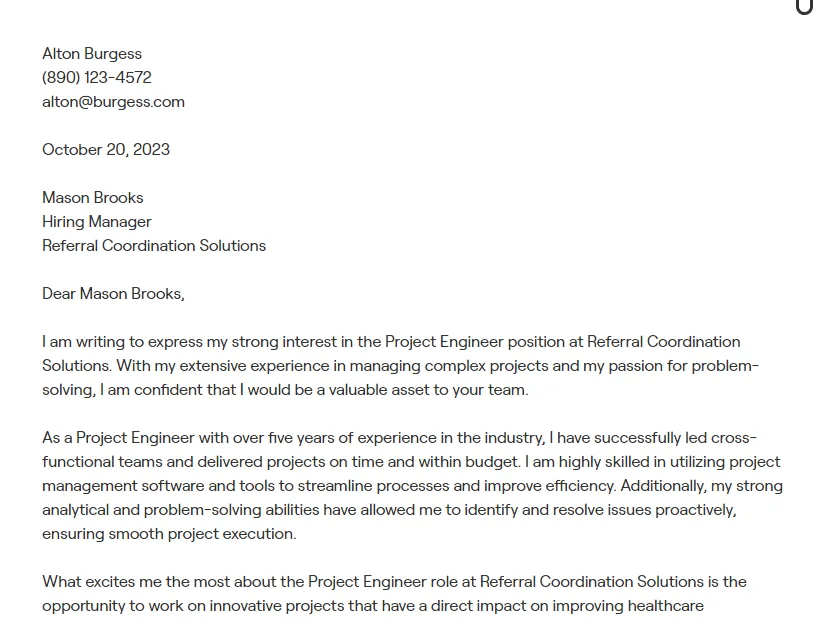
Your cover letter should be easy to read and free of errors. Use a professional font, such as Times New Roman or Arial, with a font size between 10 and 12 points. Ensure the letter is well-formatted with clear spacing and proper margins. Proofread carefully for any spelling, grammar, or punctuation errors. Have someone else review it as well, as a fresh pair of eyes can often catch mistakes you might miss.
Tailoring Your Letter to the Job
A generic cover letter will not get you far. Tailoring your letter to each job application is essential. This demonstrates your genuine interest and attention to detail. Customizing your letter shows that you’ve taken the time to understand the specific requirements of the role and how your skills align.
Researching the Company
Before writing, research the company thoroughly. Visit their website, read news articles, and check their social media profiles. Understand their mission, values, and recent projects. This information will help you tailor your letter to their specific needs and demonstrate your understanding of their business.
Matching Skills to Requirements
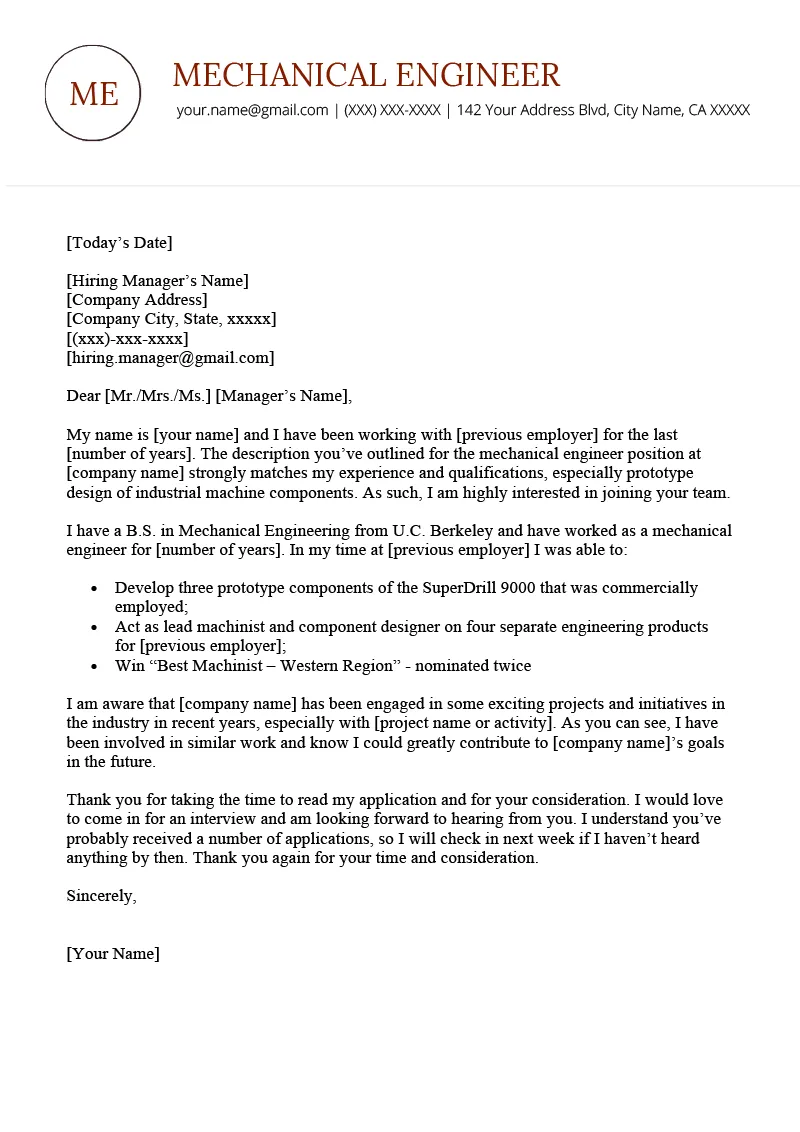
Carefully review the job description and identify the key skills and qualifications the employer is seeking. Then, highlight how your skills and experience align with these requirements. Use the same keywords and phrases from the job description when possible. This shows the hiring manager that you are a perfect fit for the role.
Closing Your Cover Letter
The closing is your last opportunity to make an impression. It should reiterate your interest and leave a lasting positive thought.
The Call to Action
End with a clear call to action. Express your eagerness to discuss your qualifications further and request an interview. Thank the reader for their time and consideration. Be confident and professional. Avoid sounding overly eager or desperate. State your availability for an interview and how they can best contact you.
Reviewing and Submitting Your Letter
Before submitting, review your cover letter one last time. Ensure it is free of errors and that it aligns with the job description. Double-check all contact information. Save the document in a professional format, such as a PDF. If the job posting requests a specific file name, be sure to use it. Good luck with your job application.
